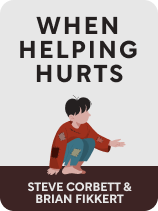

This article is an excerpt from the Shortform book guide to "When Helping Hurts" by Steve Corbett and Brian Fikkert. Shortform has the world's best summaries and analyses of books you should be reading.
Like this article? Sign up for a free trial here.
What is the key to alleviating poverty? How will job assistance programs help the poor?
One solution that Steve Corbett and Brian Fikkert, authors of When Helping Hurts, offer to reduce poverty is to set up job preparation programs in local communities. These programs can help improve skill sets and create job interview opportunities.
Read below to learn how job assistance programs are the key to poverty alleviation.
Job Preparation
According to Corbett and Fikkert, one of the most effective interventions churches can offer is job assistance programs, which serve to address the poor’s lack of education and training. They advise that an effective job assistance program has several components:
First, it should train participants in soft skills such as teamwork and problem-solving from a biblical viewpoint. Second, it should address important job preparation skills like work ethic, punctuality, and appropriate dress.
Third, there should be a group of mentors who engage with participants one-on-one to encourage them, get to know them, and help them solve problems as they come up. Ideally, your mentoring team should be large enough that each participant can meet alternately with about five different mentors. This spreads out the mentoring workload so that individual mentors are less likely to feel overwhelmed.
(Shortform note: Typically, church members helping with a poverty alleviation program are volunteers, not paid employees of the church. Based on other sources, ideally you should structure your program so that each volunteer’s time commitment is about 100 hours per year. In Give and Take, Adam Grant points out that people who volunteer between 100 and 800 hours of their time per year get the most satisfaction from their volunteer work. He also reports that volunteering up to 100 hours per year correlates with a measurable improvement in health, but the improvement plateaus above 100 hours.)
Pairing participants with multiple mentors also allows them to network with more people, which opens up more job opportunities: There’s a greater likelihood that one of a participant’s mentors knows someone who knows of a job opening that’s a good fit for the participant if the participant has several mentors than if he just has one.
Fourth, while your church may not have the resources to teach “hard” (technical) skills like welding or computer programming, you can help the poor pursue further education at vocational schools and community colleges. There they can learn “hard” skills and obtain degrees or certificates that will improve their employment options.
Finally, try to get local businesses to agree to interview everyone who graduates from your job preparedness program. This will improve their chances of job placement.
Getting Jobs Versus Getting Better Jobs
A 2015 study found that, in America at least, most poor people have jobs. They’re not poor because they’re unemployed, but rather because the jobs they have don’t adequately cover their expenses.
Prior to that study, poverty alleviation efforts in the United States had focused on reducing unemployment, often through job preparedness programs similar to what Corbett and Fikkert propose. Thus, it’s worth evaluating the authors’ job preparedness program principles to consider whether they’re useful for getting poor people better jobs or just for finding jobs for the unemployed.
Teamwork and Problem-Solving: These skills tend to be increasingly important the more responsibility (and compensation) a job entails. So this will likely still be effective for helping the poor get better jobs.
Work Ethic, Punctuality, and Dress: At a basic level, these are prerequisites for almost any job, so they’re geared more toward just getting a job. However, you might be able to modify this kind of soft-skills curriculum to help workers get better positions, because things like workplace culture and dress code are often different for higher-paying jobs, such as managerial positions, than they are for minimum-wage jobs.
Multiple Mentors: This advice remains important because networking is just as useful for career advancement as it is for getting a job in the first place.
Promoting Technical Training: This might take on proportionately greater importance if the goal is to help the working poor get better jobs because most higher-paying jobs require some kind of specialized knowledge. It might also change the focus of training because some skills and degrees are worth more than others to employers. For example, a radiology technician earns more than a graphic designer.
Local Business Involvement: As originally presented, this seems tailored more to helping people get jobs in the first place. In principle, it might still be effective, but the goal of helping people find better jobs instead of entry-level positions would likely change the types of businesses that you need to network with.

———End of Preview———
Like what you just read? Read the rest of the world's best book summary and analysis of Steve Corbett and Brian Fikkert's "When Helping Hurts" at Shortform.
Here's what you'll find in our full When Helping Hurts summary:
- How many Christian church missions actually do more harm than good
- A look into the true nature and causes of poverty
- Suggestions for how to help the poor more effectively






